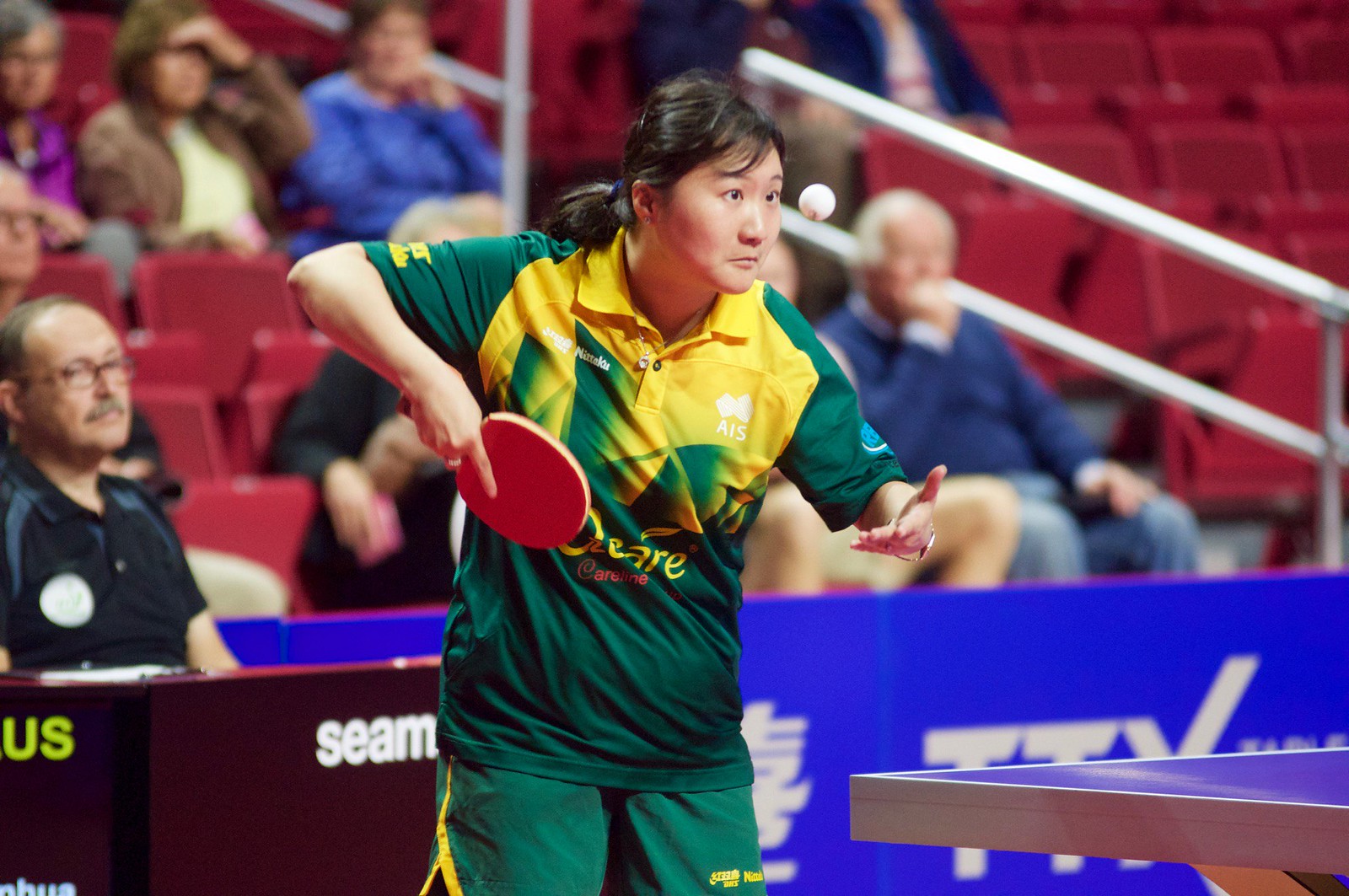by Ian Marshall, ITTF Publications Editor
Meanwhile, on the corresponding table as matters commenced, Hungary’s Georgina Pota was unrelenting in the splendid setting of the Liaouras Center.
“I feel very comfortable now, I am happy that I qualified to play the Women’s World Cup; I am satisfied and I am very happy. I will go to New York with my coach after the tournament is over and then we have European Championship so I feel good.” Georgina Pota
Impressively, she beat Australia’s Zhenhua Dederko without the loss of a single game (11-5, 11-7, 11-6, 11-8).
The Australian has caused many a player problems with the backhand executed from medium length pimpled rubber; for Georgina Pota it caused no heartaches, the backhand is the Hungarian’s strength and with a few extra degrees of rotation imparted on the ball, success was secured.
“I feel very comfortable now, I am happy that I qualified to play the Women’s World Cup; I am satisfied and I am very happy. I will go to New York with my coach after the tournament is over and then we have European Championship so I feel good.” Georgina Pota
Peter Teglas is the coach in question.
A controlled backhand from Georgina Pota won the day; from Elizabeta Samara it was a lethal forehand against a very spirited adversary who warmed to the task after losing the first two games.
Elizabeta Samara is a player who possesses a high skill factor; stay close to the table was undoubtedly the advice from erstwhile coach, Viorel Filimon.
“I should have won the match four-nil, I was leading; I thought I will win easily, I have to say she is not bad, she played much better than I thought. I needed to focus more. For me the first match is always hard. I was good with the head, my tactics were not so good. I could not sleep all night because of jet lag and I am tired.” Elizabeta Samara
Success for Europe, there was also success for Asia; Hong Kong’s Jiang Huajun beat Colombia’s Lady Ruano in four straight games (11-9, 11-3, 11-3, 11-6).

